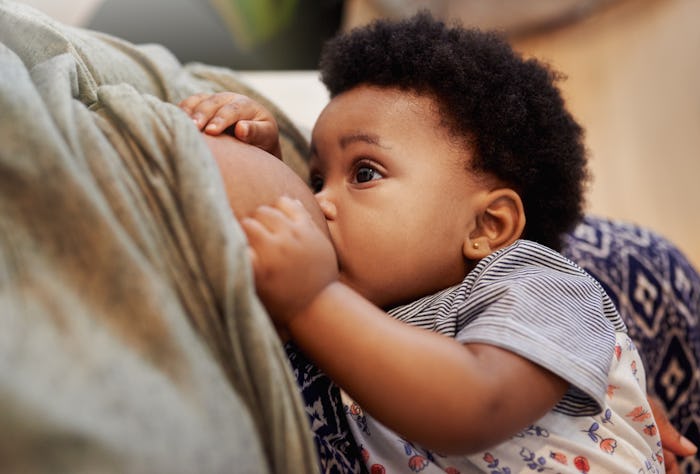Coronavirus

New Research Confirms Mothers Sick With Covid-19 Can Safely Breastfeed Their Babies
While genetic material from the virus that causes Covid-19 can sometimes be found in breast milk, researchers found no evidence actual infection could be passed through breast milk.
A new study confirms that Covid-19 positive parents cannot transmit the virus to their child through breastfeeding. While researchers from the David Geffen School of Medicine at the University of California, Los Angeles, did, in some instances, find genetic material from the virus that causes Covid-19 in breast milk, they ultimately found no evidence of infectious viral particles or transmission risk. The study, which was published Wednesday in Pediatric Research, further strengthens the U.S. Center for Disease Control and Prevention’s (CDC) argument that breast milk is unlikely to spread Covid-19 to babies.
“Breast milk is an invaluable source of nutrition to infants,” Dr. Paul Krogstad, a pediatric infectious disease researcher at the David Geffen School of Medicine and the lead author of the study, said in a statement. “In our study, we found no evidence that breast milk from mothers infected with Covid-19 contained infectious genetic material and no clinical evidence was found to suggest the infants got infected, which suggests breastfeeding is not likely to be a hazard.”
For their study, researchers analyzed breast milk samples that had been donated to the Mommy’s Milk Human Milk Biorepository at the University of California, San Diego, by 110 different women between March and September 2020. Of those 110 women, 65 had tested positive for Covid-19. Another nine women had reported having symptoms associated with Covid-19, but negative diagnostic tests. The remaining 36 women had experienced Covid-19 symptoms but were ultimately not tested for the virus.
When examining breast milk samples from the 110 women, researchers detected genetic material from the virus that causes Covid-19 (SARS-CoV-2 RNA) in just seven women’s samples, equating to roughly 6% of the total sample size. However, no evidence of SgRNA, which would indicate the presence of an infectious virus or virus replication was found in any of the breast milk samples, including the seven samples that contained genetic material from the virus. What’s more, researchers found no clinical evidence of Covid-19 infection in any of the babies nursed by the seven women found to have Covid-19 genetic material in their milk.
“SARS-CoV-2 RNA can be found infrequently in the breast milk after recent [Covid] infection, but we found no evidence that breast milk contains an infectious virus or that breastfeeding represents a risk factor for transmission of infection to infants,” the study noted.
While Krogstad’s study is the largest study to date to analyze breast milk for risk of Covid-19 transmission, it’s not the only research available. Both the CDC and The American College of Obstetricians and Gynecologists (ACOG) have noted that current research shows it is safe to breastfeed when sick with Covid-19 as the virus is not likely to spread or transmit through breast milk. An earlier, smaller study carried out by researchers at the University of California San Diego School of Medicine and published in JAMA in 2020 also found no evidence of infectious virus in breast milk samples.
But parents who are sick with Covid-19 are encouraged to take some precautions while nursing in order to prevent transmitting the virus to their baby through other means. The CDC recommends washing your hands before touching your child and breastfeeding and wearing a mask whenever you are in close contact with your baby, including during feedings.